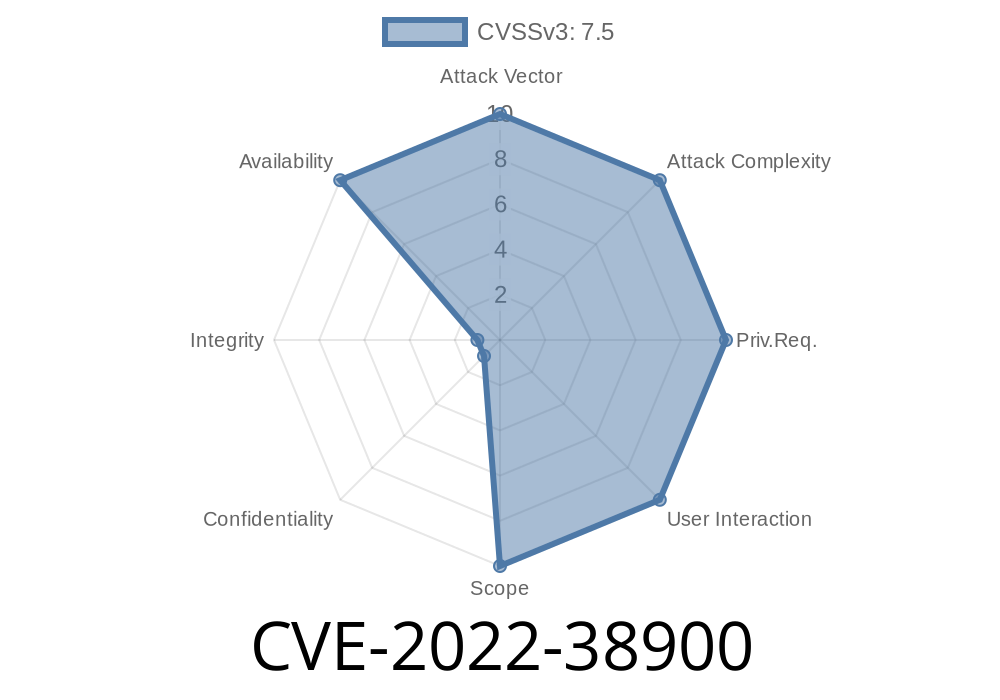Node.js apps often lean on libraries to tighten up code and speed up development. But not every library is bulletproof, and sometimes, small helper libraries can open big security cracks. Recently, CVE-2022-38900 put the spotlight on such a risk: an input validation flaw in decode-uri-component version .2. that can let attackers knock out your server with a simple, malformed input.
In this long read, we’ll break down what really happened with decode-uri-component, show you how the vulnerability can be triggered with code, and offer smart steps to keep your app safe.
What is decode-uri-component?
decode-uri-component is a tiny Node.js utility for decoding percent-encoded URI components, mainly used to parse URL query parameters. Unlike JavaScript's native decodeURIComponent, this package tries to handle more edge cases and malformed input more gracefully.
Here’s a typical example
const decode = require('decode-uri-component');
const raw = 'hello%20world%21';
console.log(decode(raw)); // Output: hello world!
Simple, right? But as it turns out, the devil is in the details…
The Issue: Improper Input Validation Can Lead to DoS
The bug, logged as CVE-2022-38900, is classified as an Improper Input Validation vulnerability. So what does that mean in plain talk?
It means the library doesn’t properly check if the data it’s dealing with fits the format it expects. A poorly formatted input (something an attacker can easily provide) can trip up decode-uri-component, causing the app to enter an infinite loop or crash — a denial-of-service (DoS).
What triggers the bug?
Sending certain long or malformed percent-encoded strings.
Why does this matter?
If your backend API or website uses this library to decode anything users send (such as strings in GET/POST requests), an attacker can intentionally send a “poisoned” string and stall the whole Node.js process.
Exploit in Action: Crashing decode-uri-component
Let’s look at a real-life code snippet that demonstrates the bug.
Suppose your API endpoint decodes every query string with this library
const decode = require('decode-uri-component'); // version .2.
// Imagine this is inside a route handler:
function handler(req, res) {
const value = req.query.input; // comes from user!
try {
const decoded = decode(value);
res.send('Decoded: ' + decoded);
} catch (err) {
res.status(400).send('Malformed input!');
}
}
Here’s a payload that can break the system
%a%A%A%A%A%A%A%A%A%a%A%A%A%A%A%A%A%A....(very long)...
Or just %a repeated a few thousand times. Like this
const decode = require('decode-uri-component');
const input = "%a".repeat(50000);
console.log(decode(input));
Node.js freezes: The process uses all CPU and never returns.
- Server crash: If your app isn’t prepared to handle this, it may become unresponsive — a clear DoS.
3. Why does it hang?
When decode-uri-component tries to decode %a, it expects a proper percent-encoding: %XX (where X is a hexadecimal digit). If the library code doesn’t reject short or malformed codes, its internal logic can get stuck in an infinite loop or recursion, repeatedly trying to “fix” the input that never resolves.
1. Upgrade Immediately
Update your dependency to a patched version. Make sure your package.json specifies at least version .2.1.
Do this
npm install decode-uri-component@latest
2. Validate Input Before Decoding
As a rule, always validate input from the outside world. E.g., check if it matches expected patterns before passing it to decoder functions.
3. Catch Errors Properly
Even with safe libraries, always wrap input parsing in try...catch blocks to avoid uncaught exceptions.
References
- CVE-2022-38900 in the NVD
- decode-uri-component on npm
- decode-uri-component vulnerability report on Snyk
- GitHub Issue with fix
Conclusion
Seemingly harmless utility libraries can introduce real risks into Node.js projects. With decode-uri-component .2., a simple web request was enough to take down a whole app. Patch often, never trust user input, and always keep an ear to the ground on dependency vulnerabilities.
Timeline
Published on: 11/28/2022 13:15:00 UTC
Last modified on: 03/30/2023 04:15:00 UTC
